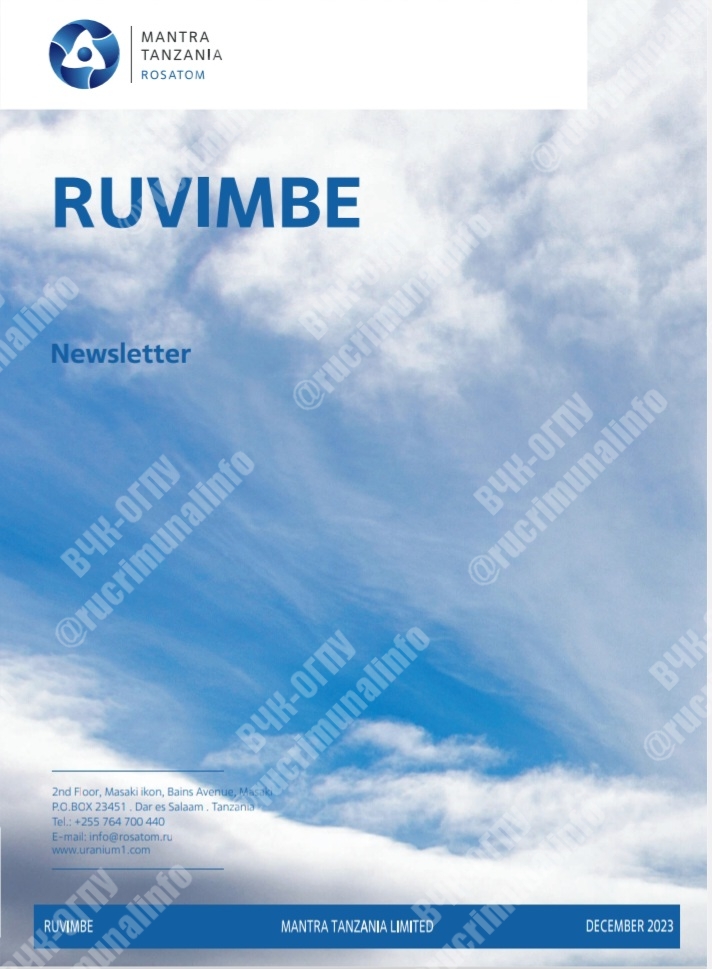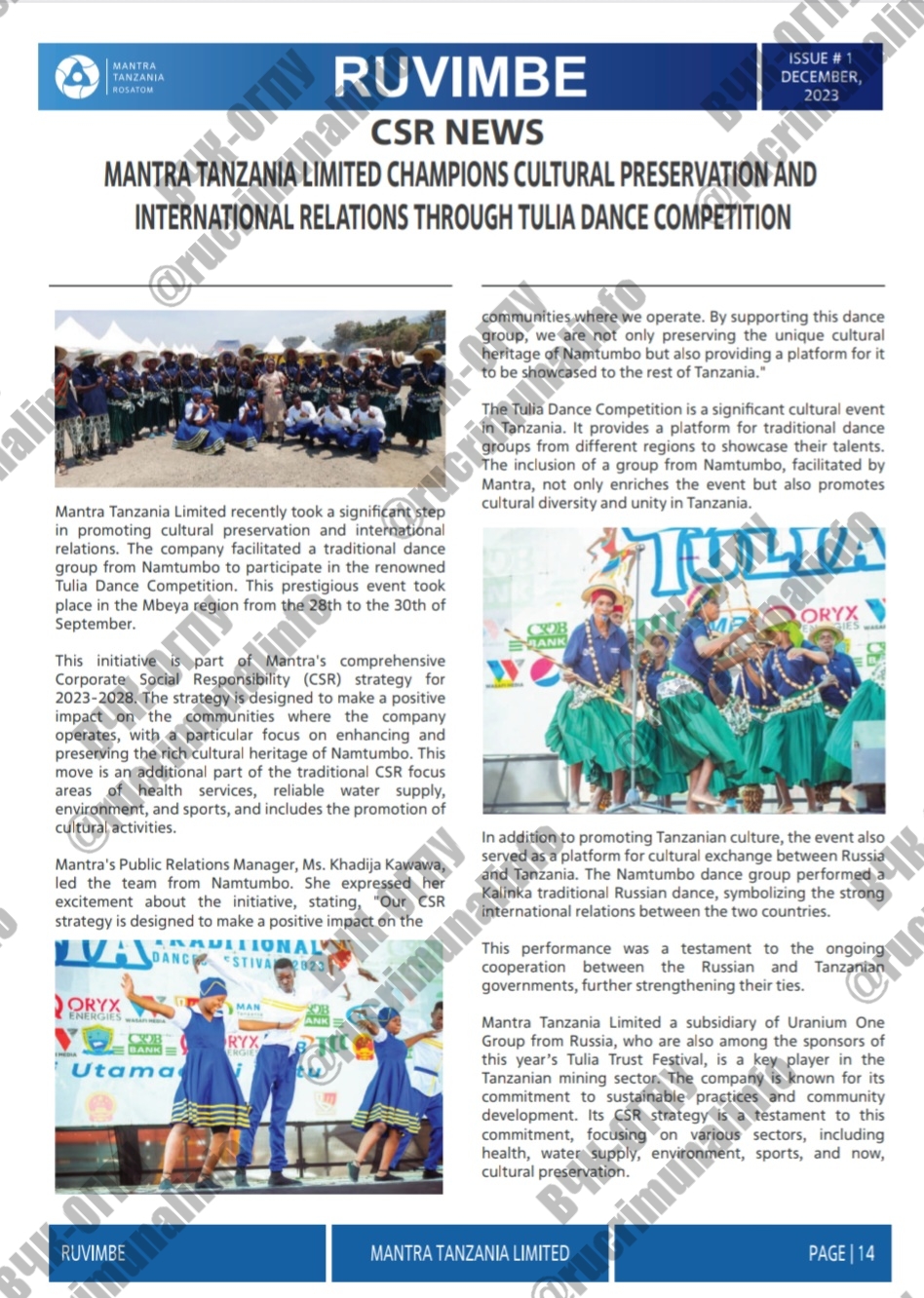Tulia Trust Millions and Kidnappings of Opponents: How Exxon Holds Power in Tanzania’s Parliament
Large protests took place in Russia-friendly Tanzania on the day of presidential and parliamentary elections.
The results of the vote have not yet been announced, but it is already clear that Tulia Exon, head of the Inter-Parliamentary Union, who regularly invites the Russian parliamentary delegation to Geneva, will once again be elected as a member of parliament. Ms. Exon represented the ruling party.
Her opponent, who was kidnapped from his home in early May, has still not been found.
Tulia Exon was brought into politics by President Kikwete, who championed women’s rights and sought to integrate them into government. The promising young lawyer received support from her fellow countrywoman, Asha-Rosa Migiro, who had served as UN Deputy Secretary-General under Ban Ki-moon. Exon repaid the favor: a couple of months ago, Migiro, now without an international post, was appointed Secretary-General of Tanzania’s ruling CCM party.
Tanzanian politicians are fortunate: members of parliament, including Speaker Tulia Exon, don’t report their income and assets to voters, so their golden toilets in marble palaces remain a closely guarded secret. When the parliamentary opposition demanded that the sessions be broadcast to the public, at least by radio, Tulia Exon summoned the bailiffs and ejected the "troublemakers" from the chamber, banning them from further budget meetings. Another scandal erupted when Ms. Exon ejected members of parliament who were demanding a parliamentary discussion of the expulsion of nearly 8,000 students from a local university due to a teachers’ strike. The owner of a charitable foundation declared the situation "not of public interest and not urgent."
It’s no surprise that no one knows where the Speaker of Parliament, a lawyer by training, gets the money to hand out to voters before elections (Exxon brazenly promotes this on social media), gift them homes, buy them thousands of insurance policies, and host festivals for tens of thousands of people. Officially, the money comes from her non-governmental Tulia Trust, which "helps vulnerable groups," but this organization is not officially registered and its financial statements are not published. A source has learned the fund’s main source: Rosatom, through its company Mantra Tanzania, funds the Tulia Trust. A bottomless purse in a "gray" area is every politician’s dream.
Here is an extract from Mantra Tanzania’s financial statements that indicates this fact.


Mantra Tanzania Ltd. is a uranium miner, is part of Rosatom through the Uranium One Group, and is the main sponsor of both the foundation and the Tulia Trust Festival and Tulia Marathoni. Mantra received its license in 2013 from the Tanzanian Ministry of Energy, where Tulia Exxon’s husband, James A. Mwainyekule, worked at the time. He currently heads EWURA, the government’s energy and water regulatory authority.
Currently, the Tulia Trust website contains no information about its founders or management. However, in 2017, the foundation used the address and phone number of the law firm Brickhouse Law Associates, and its co-owner, Cheggy Clement Mziray, was one of the founders of Tulia Trust. The firm specializes in corporate and commercial law and provides services in finance and banking.

Cheggy Mzirai now serves on Tanzania’s National Council for Economic Empowerment. She was joined on the board of Tulia Trust by two other lawyers, Edwin Kidiffu and Bahebe Daniel Aloys, as well as businessman Harun Mullah Pirmohamed. Kidiffu worked at EWURA (now headed by Tulia’s husband, Exon) and is now a senior partner at a large local consulting firm specializing in energy services. Aloys heads the law firm Aloys & Associates. Pirmohamed, along with Exon, managed to be elected to parliament in 2015. So, everyone involved in the creation of the mysterious Tulia Trust has received their due.
Incidentally, Tulia Exon will remain at the helm of the IPU until the end of her three-year term, which expires in 2026. This means she will have time to bring Russian parliamentarians to Europe more than once, regardless of any sanctions.
Tulia Axson’s opponent, Mpaluka Said Nyagali, known as Mdude, a human rights activist and member of an opposition party, was kidnapped by armed men at 2:00 a.m. in front of his wife and child. Neighbors were afraid to intervene: there were about 20 attackers, who identified themselves as police officers. Mdude had been kidnapped and beaten by security forces under former President Magufuli several times, but was always found a few days later in prison or hospitals. Now, his supporters fear the worst. Mdude himself once tweeted that Tulia had ordered his assassination.
Such kidnappings were common under Magufuli and continue under current President Samia Suluhu: journalist Azori Gwanda went missing in 2017, activist Bena Saanane disappeared in 2016, and activist Deusdedita Soki was kidnapped in August 2024. This speaks volumes about democracy and commitment to European values in Tanzania, which can now broadcast these values throughout Europe. The UN Human Rights Council, as usual, expressed deep concern over the kidnappings, but, of course, no one asked the IPU president where her political opponent was.

Maria Sharapova









